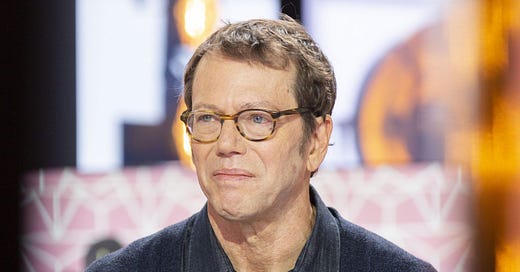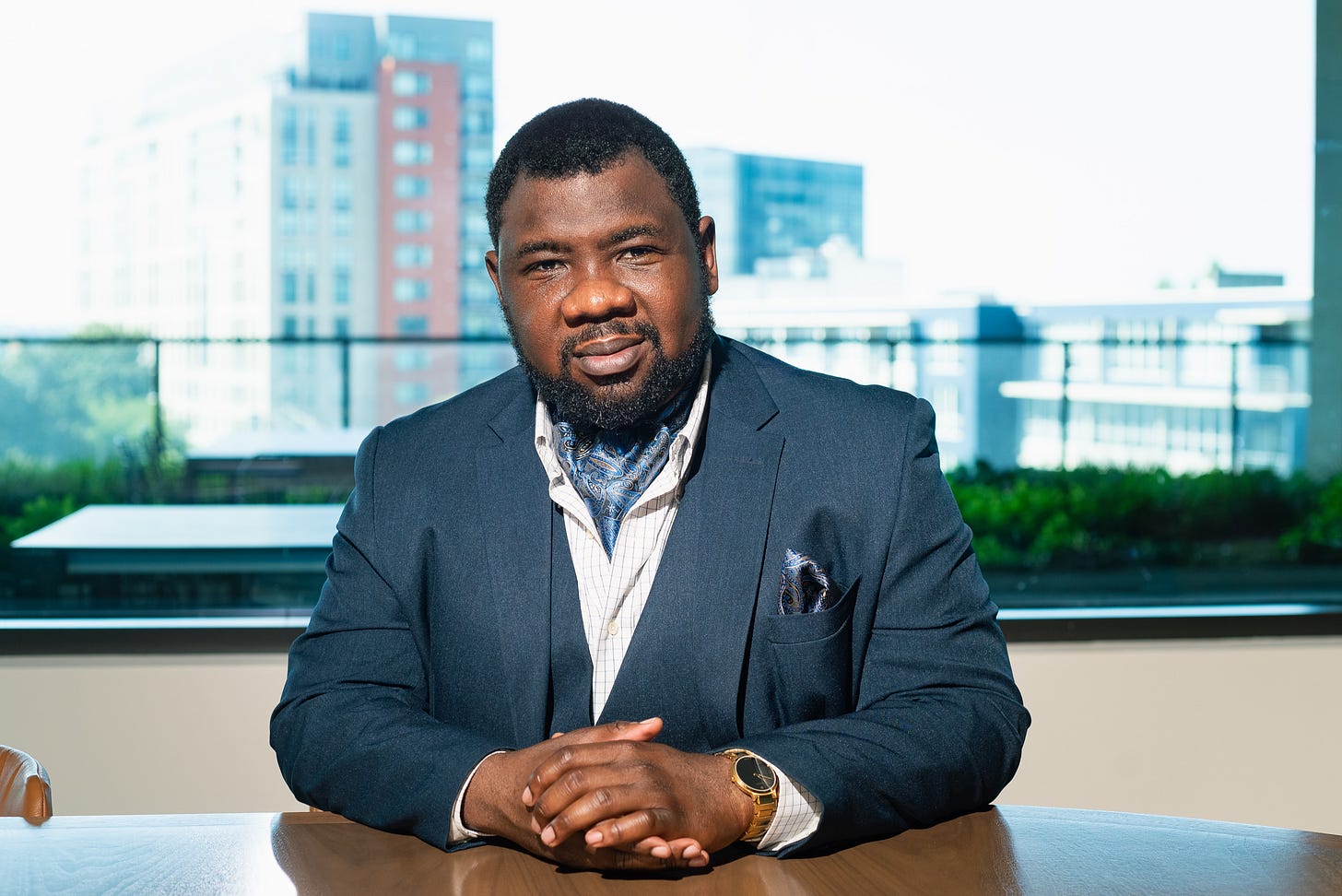There can be different reasons for difficult, out-of-control ego. Robert Greene talked about the topic and some of the choices he says that we have to respond to it.
Greene, per Wikipedia, is an author of books on strategy, power and seduction.
“He has written seven bestsellers, including The 48 Laws of Power, The 50th Law (with 50 Cent), Mastery, The Laws of Human Nature — and The Daily Laws.”
About how people feel about themselves, he said:
"Everybody has an ego. Every single one of you has an ego. I have an ego. I certainly do have an ego,” Greene stated.
“Those egos are sometimes fairly small. Sometimes they're enormous,” he added.
“If you prick an ego, if you touch an ego, if you say the wrong thing, particularly with colleagues or bosses in the office, you're going to have a world of pain — and your life is going to be miserable. So you have to be aware of people's egos.”
He suggests that we have a decision to make about what to do next.
"And there's 3 things you can do with an ego,” Greene begins.
“First of all, be very, very careful not to trigger them. Second of all, use people with very prickly egos, if they are a rival, to kind of bait them into an overreaction to put them in a bad position. The third thing, is to kind of use people's egos to turn them into an ally."
Greene’s point, "be very, very careful not to trigger them,” is a common strategy in a professional and personal situations.
“Most of Greene's work focuses on power dynamics, particularly where there is an inherent imbalance,” points out Omotola Ajibade, MD, a forensic and correctional psychiatrist at Ajibade Consulting Group, whose focus is on criminal justice and policing reforms. “Many of his books teach people how to acquire power, maintain it and exploit it for their own ends.”
He addresses Greene’s warning about not inciting dangerous egos.
“The first approach is best reserved for situations with a high power imbalance in which the more powerful person is easily triggered. Often, such people have authoritarian personalities and leadership styles,” Ajibade says.
“You can get further with such people by going along and bringing their desires to fruition. However, this approach often comes at a price. It can turn you into a people pleaser and limit your own agency.”
He instead offers a different way of thinking and proceeding.
“If you take this approach, I think it's best to have limits and firm boundaries. If possible, it's even better to communicate those boundaries upfront,” Ajibade recommends. “If those boundaries are communicated early and held firm, the ego-driven person is less likely to be.”
“Although we can’t control how others respond, we can control how we respond,” says Kwan Patton, MA, a licensed mental health therapist and creator and host of the podcast “Manifesting Your Wings of Worth” and the YouTube channel “Vision of Life.”
“The best approach is to focus on our own emotional regulation because sometime the ego will follow suit, and if we are in a rational state, chances are that person may also respond in a rational state — because ego also involves fear of losing control and what that might look like to other people around them witnessing their reactions.”
Greene's second recommendation suggests that a strategic action to consider is responding in a way, that if that person is a rival, to lure them into an overreaction to put them in a unfavorable or costly social, workplace or business situation.
At first thought, this appears to go against his first warning not to trigger people and seems dangerous and also, of low professionalism and character.
“When we respond in a way to bait someone, we are also utilizing our own ego in a negative way,” Patton reminds us. “Anytime we decide to bait someone, we are bringing negative energy and approaching it from toxic standpoint; it is always important to challenge ourselves in these situations and being cognizant of our own mindset.
“To put it bluntly, we should never “match energy” if it is carrying a negative connotation.”
She goes on to elaborate what will be the probable outcome.
“When we approach things in a negative energy, we should expect to receive and manifest that same energy back to us,” Patton says. “Ego can be very dangerous, but if we use it to grow and foster self-love, we can expect positive outcomes.”

“Greene's work often sets up contradictory ideas, with the caveat that they are only to be used in specific situations,” Ajibade details.
“For example, when you read the ‘48 Laws of Power’ some of the laws contradict other laws. Each law in the book is formatted with a historical example of someone obeying the law, someone transgressing the law and how to know when to break the law —Greene's recommendations about managing egos set up a similar dynamic.”
“In this case, Greene explicitly states that the second approach is best ‘if they are a rival.’ This implies that some antagonism is already built into the dynamic,” Ajibade explains, going on to provide a warning. “This approach is not to be taken lightly, as it can risk escalating the perceived conflict.”
He points to where this behavior is most often operating and observed in society.
“This dynamic is common in military and political insurgency campaigns,” Ajibade says. “Often, a smaller force purposely takes actions to ensure the overreaction of the more powerful force.
“The smaller force has the advantage that the bigger force almost always responds, making them look like bullies. The smaller force uses this to gain more sympathizers,” he adds.
Ego can intimidate us. It’s dangerous too though to those who use it for that purpose.
“The bigger force invariably has the larger ego, which puts it in a lose-lose situation,” Ajibade contends. “The smaller forces' actions expose the bigger forces' weaknesses, which is often untenable because it may make them look even weaker if they don't respond. Hence, they always respond and often overrespond.”
To think of exploiting the person with the reactive ego is unwise.
“The approach of baiting the more prickly ego is dangerous because you are unlikely to be unscathed in the process,” Ajibade warns.
“This is not an approach that I would recommend unless you're truly in an in-navigable and abusive situation,” he says. '“It runs the risk of becoming a pyrrhic victory because it's essentially a scorched earth approach.”

Greene’s third choice is pursuing the opportunity to connect with the person, to turn them into an ally. It may not often seem possible yet, if achieved, it is the elegant solution that acts as smart, useful, forward thinking.
“Anytime we use ego to represent a positive outcome, we are always moving in the right direction mentally,” Patton says.
She talks about how that can be accomplished in practice.
“It all starts with our own thinking patterns as to how we relate and respond to others. It is so important to recognize how energy carries through our lives, rather negatively or positively.
“Using ego to catapult our forward movement in a more positive direction will always guarantee long lasting growth and happiness.”
“This is certainly the less confrontational approach and perhaps the best default strategy,” Ajibade agrees. “That's probably why there are so many clichés and sayings about it. For example, Abraham Lincoln is often quoted as saying, ‘Do I not destroy my enemies when I make them my friends?’”
He does have a recommendation or at least, a suggestion, to consider.
“Everyone has strengths and weaknesses; ego-driven people are particularly sensitive to this,” Ajidbade says. “If you want to convert such a person into an ally, you can either play to their strengths or reframe their weaknesses.
“You'll probably find more ready examples of ways to play to the strengths of the ego-driven person. Often, giving them credit for a positive outcome is a great first step. Most people will likely do this, so it may be of little value initially.”
Better, he states, to go down the other path.
“It's more challenging to reframe someone's weakness as a strength — or as an integral factor in creating a positive outcome,” he admits, yet adding, “Doing this may help them save face, which might make them more amenable to you.”
To advertise, sponsor a section of the newsletter or discuss your affiliate marketing program, contact CI.
Recent Articles
Instead of Pointing the Finger, We Can…
The Smart, Brave ‘Idiot’ in Meetings
Successful Leaders’ Stage Fright — And Overcoming It









